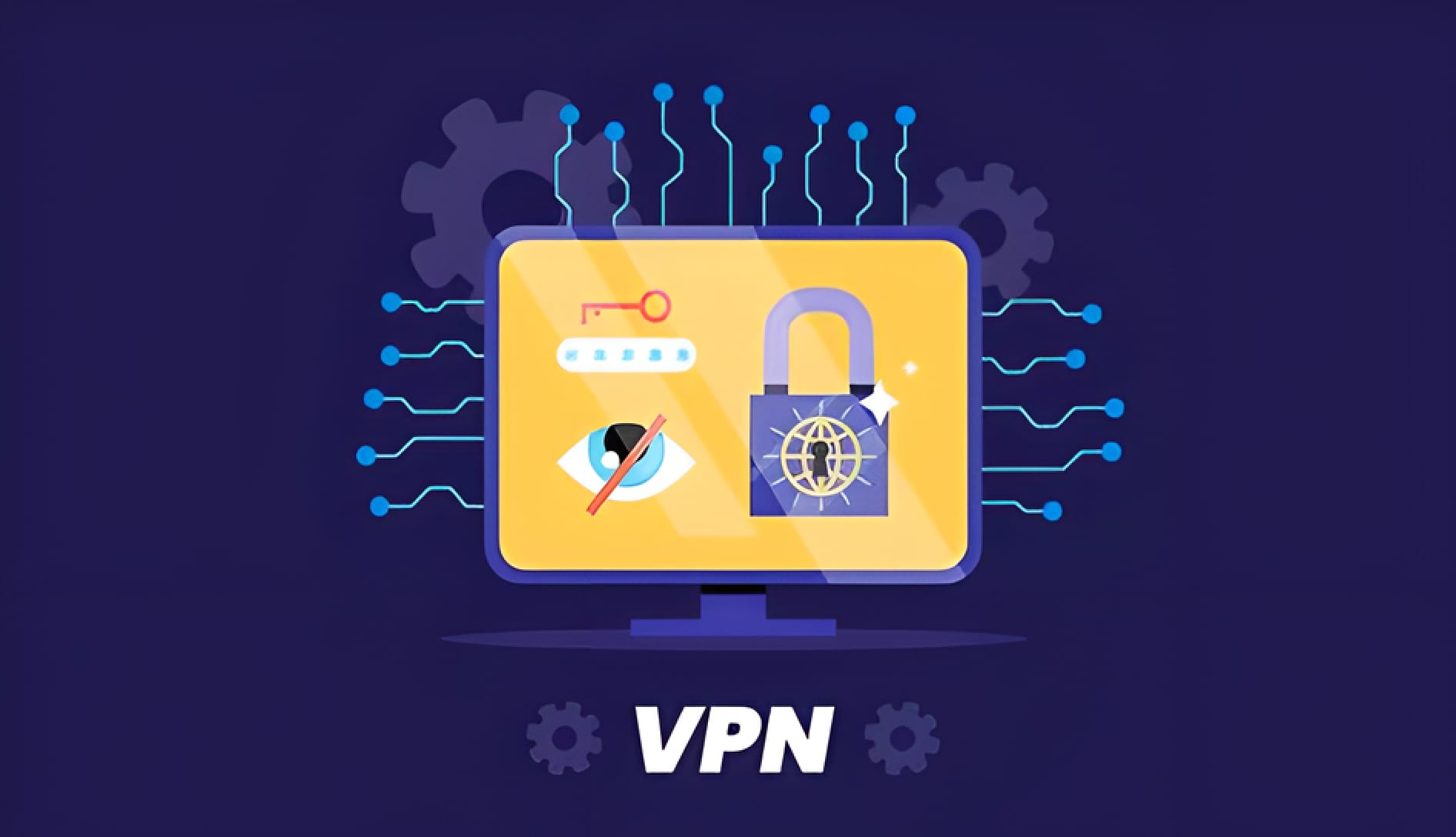What Does A VPN Not Do?
VPNs provide numerous benefits, but it's crucial to understand what they can't do as well as their limitations.

VPNs, or virtual private networks, are becoming increasingly popular as vital resources for improving internet security and privacy. Even though VPNs have many advantages, it's important to be aware of their drawbacks and what they cannot accomplish. Let's examine some widespread misunderstandings and the related VPN security risks.
Written by Sherry
Contact us via matia4441298@gmail.com
1. Total privacy:
One of the most pervasive misconceptions regarding VPNs is that they offer total online privacy. VPNs do not provide complete anonymity, even though they can encrypt your internet traffic and disguise your IP address. Websites and online platforms may nevertheless monitor your actions when you use them, particularly if you divulge personal information or take part in activities that violate your privacy.
2. Protection Against All Threats:
It's a common misperception that VPNs provide total defense against online dangers. VPNs are useful for safeguarding internet connections and encrypting data, but they are not impervious to all dangers. VPNs, for instance, offer no defense against malware infections, phishing scams, or social engineering techniques employed by hackers to take advantage of security holes.
3. Unrestricted Website Access:
VPNs are frequently promoted as instruments to get around geo-restrictions and access content that is blocked from any location in the globe. VPNs do not provide unrestricted access to all websites, even though they can assist in getting over geo-blocks on websites and streaming services. A VPN by itself is insufficient to access some premium services and websites that demand membership fees or other charges.
4. Replacing Other Security Measures:
VPNs are a crucial component of internet security, but they shouldn't be used in place of other security precautions. It's a common misconception that utilizing a VPN eliminates the need for security tools like strong passwords and antivirus software. To offer complete security against online dangers, VPNs should be used in addition to these precautions.
5. Handling Account Theft:
The fact that VPNs do not provide account theft protection is an important point that is frequently missed. Hackers who get login credentials through phishing schemes or other ways can still access accounts without authorization, even in the case of encrypted data communications. Adopting strong authentication procedures and being watchful for efforts to steal accounts are crucial.
6. Defense Against Phishing Attacks:
VPNs are not very effective in reducing the danger of phishing attacks, which continue to pose a serious threat to cybersecurity. VPNs shield users from prying eyes and encrypt internet data, but they are not impervious to phishing attacks. Reducing the likelihood of phishing assaults requires education and knowledge of phishing strategies.
7. Performance Enhancement:
A common misperception is that VPNs may increase internet performance and speed. Under some circumstances, VPNs can keep connection speeds constant, but they can also cause delay and poor performance, especially when using subpar VPN services. Users should choose VPNs based on performance evaluations and reliability ratings, and they should carefully examine any claims of improved performance.
8. Handling Insider Threats:
Malicious or careless acts by people who work for a company constitute insider threats, which are not covered by VPN solutions. VPNs can encrypt data transfers between devices, but they are powerless to stop authorized users from sharing or misusing private data or from abusing it. Insider threat mitigation must be a part of comprehensive security plans.
9. Fixing Device Vulnerabilities:
While VPNs can encrypt data, they cannot fix vulnerabilities that exist in the hardware itself. Regardless of whether a VPN is utilized or not, outdated software, unpatched security issues, and unsupported hardware present serious cybersecurity concerns. Prioritizing device security and putting patch management procedures into place go hand in hand with VPN implementation for organizations.
10. Comprehensive Risk Management:
Although VPNs are essential to network security, a comprehensive risk management approach consists of more than simply VPNs. In order to effectively manage cybersecurity, organizations need to take a multifaceted strategy that takes into account threats to people, processes, and technology. In order to successfully minimize security threats and safeguard sensitive data, VPNs should be incorporated into larger security frameworks.
Conclusion
Even though VPNs are a great way to improve online privacy and security, it's important to be aware of the security dangers and restrictions they present. Through recognition of these constraints and implementation of a comprehensive cybersecurity strategy, entities may proficiently address security risks and protect their digital resources.